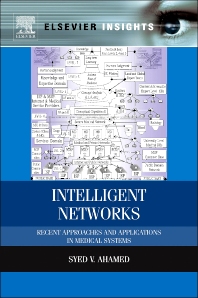Books in Artificial intelligence general
Books in Artificial intelligence general
- 1st Edition
- Volume 14
- June 28, 2014
- L.N. Kanal + 3 more
- English
- eBook9 7 8 1 4 8 3 2 9 5 7 4 9

Parallel Processing for Artificial Intelligence 1
- 1st Edition
- Volume 9
- June 28, 2014
- T. Jelassi + 2 more
- English
- eBook9 7 8 1 4 8 3 2 9 8 4 3 6

Decision Support Systems: Experiences and Expectations
- 1st Edition
- May 23, 2014
- J. S. Gero
- English
- eBook9 7 8 1 4 8 3 1 6 4 8 0 9

Artificial Intelligence in Design '91
- 1st Edition
- May 23, 2014
- COLT
- English
- eBook9 7 8 1 4 8 3 2 9 9 1 4 3

COLT '91
- 1st Edition
- May 20, 2014
- Alan Pipes
- English
- eBook9 7 8 1 4 8 3 1 6 2 2 7 0

Computer-Aided Architectural Design Futures
- 1st Edition
- May 16, 2014
- Soumitra Dutta
- English
- eBook9 7 8 1 4 8 3 1 8 3 9 2 3

Knowledge Processing and Applied Artificial Intelligence
- 1st Edition
- May 12, 2014
- David Heckerman + 1 more
- English
- eBook9 7 8 1 4 8 3 2 1 4 5 1 1

Uncertainty in Artificial Intelligence
- 1st Edition
- January 25, 2014
- Bo Long + 1 more
- English
- Paperback9 7 8 0 1 2 4 0 7 1 7 1 1
- eBook9 7 8 0 1 2 4 0 7 2 0 2 2

Relevance Ranking for Vertical Search Engines
- 1st Edition
- July 3, 2013
- Syed V. Ahamed
- English
- Hardback9 7 8 0 1 2 4 1 6 6 3 0 1
- eBook9 7 8 0 1 2 4 1 6 6 7 0 7

Intelligent Networks
- 1st Edition
- May 16, 2013
- Xin-She Yang + 4 more
- English
- Hardback9 7 8 0 1 2 4 0 5 1 6 3 8
- eBook9 7 8 0 1 2 4 0 5 1 7 7 5
